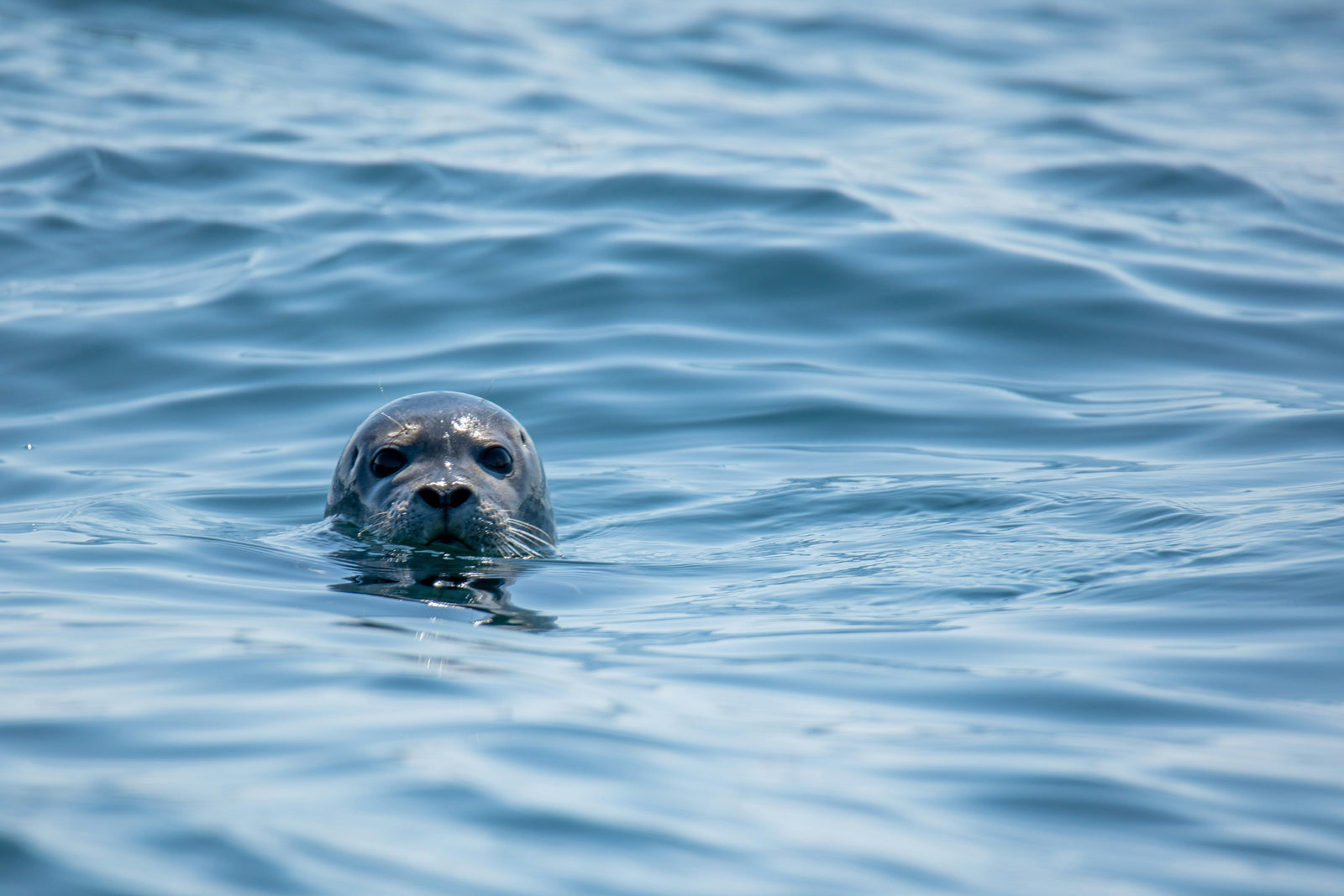Do Seals Think You're One of Them? The Science Behind FADER Grey

Do Seals Think You’re One of Them?
Why our FADER Grey wetsuit might be the secret to unforgettable underwater encounters.
Over the past few months, three of our divers have reported something pretty amazing: seals swimming noticeably closer, lingering longer, and seeming more curious—when they wore our FADER Grey wetsuit instead of a classic black one.
So what’s going on here? Could seals be mistaking us for one of their own?
The Way Seals See the World
Seals have pretty incredible underwater vision. Their eyes are designed to handle low light and murky water, with lots of rod cells to help them see movement and contrast clearly. But when it comes to color, their world looks very different to ours.
Most seals are thought to be colorblind to reds, oranges, and browns. Their vision is mostly tuned to shades of blue and green—meaning a black wetsuit probably just shows up as a solid dark shape. But our FADER Grey? It blends in more naturally with the underwater environment.
Even better, it mirrors the silvery shimmer of a seal’s own fur underwater—caused by tiny air bubbles that get trapped in their coat and reflect the light. So in FADER Grey, you’re not just less visible—you’re familiar.
Underwater Movement Matters Too
On the surface, divers in black suits might vaguely resemble seals from a distance, but the illusion often ends there. Once underwater, though, our movements become smoother and more flowing—more seal-like. Pair that with the soft shimmer of FADER Grey, and the visual signals line up in a way that might just make a curious seal think, huh… maybe you’re one of us.
Seals Are Inquisitive and Intelligent
We know seals are smart—on par with dogs, in fact. They’re naturally curious, especially around humans they don’t see as a threat. So if you suddenly look more like a fellow seal than a strange dark blob, it’s no surprise they might come in for a closer look.
It’s a bit like those viral videos where pet owners dress up like their cats or dogs. The reactions range from baffled to fascinated. If pets can react like that, why not seals?
An Open Invitation to Explore More
Of course, we can’t say for certain what’s going on in a seal’s mind—but we think this is a pretty exciting theory. And we’d love to see it explored further. If you’re a marine biology student, animal behaviour nerd, or just someone who’s curious like we are, this could be a fascinating area to study.
Got ideas? We’d love to hear them.



